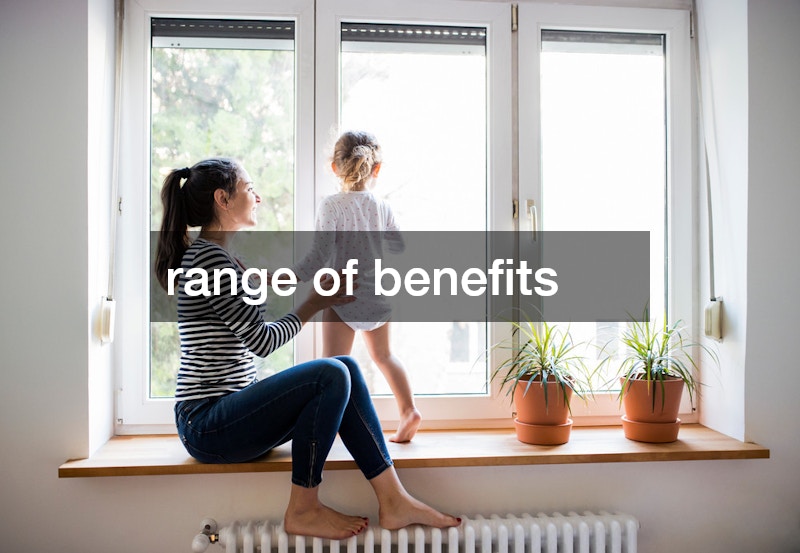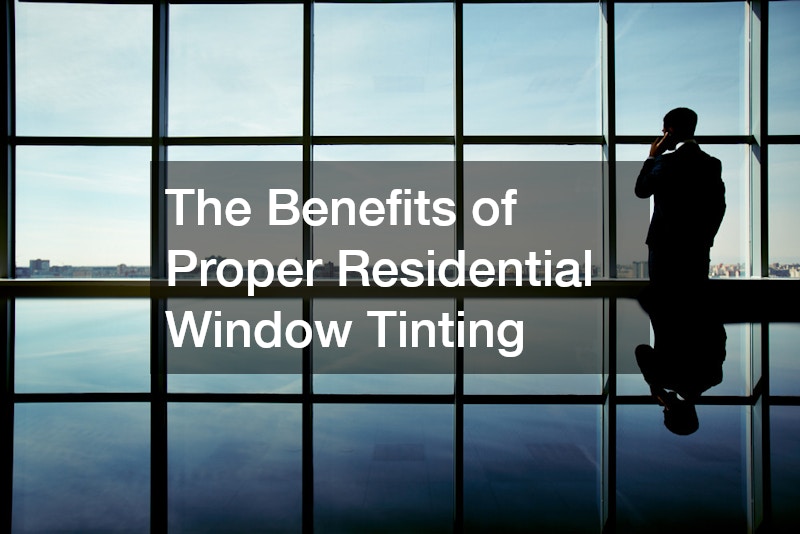Residential window tinting refers to the process of applying a thin film to the glass surface of windows in a home to improve various aspects such as energy efficiency, UV protection, privacy, and security. Window tinting can come in various types, including reflective, dyed, and ceramic films, each offering different benefits to homeowners.
Common applications of residential window tinting include reducing glare, enhancing aesthetics, and protecting furniture and flooring from sun damage.
Window tinting can help regulate the temperature inside a home by blocking heat from the sun during hot summer months and retaining warmth during the winter, resulting in lower energy bills and increased comfort for occupants. Additionally, window tinting can block up to 99% of harmful UV rays, protecting residents from skin damage and reducing the fading of interior furnishings. Overall, residential window tinting offers a cost-effective solution for improving the quality of living in a home.
By adding a layer of tinted film to windows, homeowners can increase their privacy and security, as it reduces visibility from the outside while allowing those inside to maintain a clear view. This added level of privacy can help residents feel more secure in their homes and deter potential intruders from targeting the property. With these benefits in mind, residential window tinting has become a popular choice for homeowners looking to enhance the functionality and aesthetics of their windows.
How Does Residential Window Tinting Benefit Homeowners?
One of the primary benefits of residential window tinting is its impact on energy efficiency. By reducing the amount of heat transferred through windows, tinted films can help homeowners save on cooling and heating costs throughout the year. This can lead to significant long-term savings on utility bills, making window tinting a worthwhile investment for any homeowner looking to improve the energy efficiency of their property.
In addition to improving energy efficiency, residential window tinting provides UV protection for residents and their belongings. UV rays can cause skin damage and fade furniture, carpets, and artwork over time. By blocking UV rays, window tinting helps protect occupants and preserve the appearance and longevity of interior furnishings. This added layer of protection contributes to a healthier and more comfortable living environment for homeowners.
Another advantage of residential window tinting is the privacy and security it offers. Tinted windows prevent outsiders from easily looking into a home, giving residents peace of mind and a sense of seclusion. This added privacy can be particularly beneficial for households in busy neighbourhoods or high-traffic areas. Additionally, the extra barrier provided by window tinting can deter potential burglars, adding an extra layer of security to the property.
Is Residential Window Tinting a Worthwhile Investment?
When considering the cost savings associated with residential window tinting, it becomes clear that this investment can pay off in the long run. By reducing energy consumption and prolonging the lifespan of interior furnishings, window tinting can help homeowners save money on utility bills and maintenance costs over time. This makes window tinting a cost-effective solution for enhancing the efficiency and comfort of a home.
Aside from cost savings, residential window tinting can also improve home comfort by regulating temperature and reducing glare. By creating a more consistent and comfortable indoor environment, window tinting ensures that residents can enjoy their living spaces year-round. Furthermore, the added level of privacy and security provided by tinted windows enhances the overall quality of life for homeowners, making it a worthwhile investment for those looking to upgrade their properties.
In terms of property value, residential window tinting can enhance the aesthetics and functionality of a home, increasing its appeal to potential buyers. Tinted windows can improve the overall curb appeal of a property, making it more attractive to prospective purchasers. Additionally, the energy efficiency and security benefits of window tinting can boost the resale value of a home, providing a return on investment for homeowners who choose to invest in this feature.
In conclusion, proper residential window tinting offers a wide range of benefits for homeowners, including energy efficiency, UV protection, privacy, and security. By investing in window tinting, homeowners can save on energy costs, protect their belongings, enhance their privacy and security, and increase the value of their properties. With the numerous advantages that residential window tinting provides, it is clear that this feature is a valuable addition to any home.




